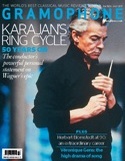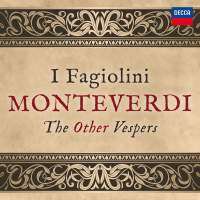Texte paru dans: / Appeared in: |
|
|
Outil de traduction (Très approximatif) |
|
|
Reviewer:
David Vickers
In such sure
hands (and throats) as these, Monteverdi’s psalm-settings reach their fullest
capacity to enchant and astonish. Dixit Dominus (primo) achieves a
thrilling synergy of articulate instrumental playing, fulsome choral ripienos
and dexterous solo singing. Sonorous textures doubled by trombones and harmonic
twists from the violins are balanced perfectly in the descending chromaticism
that word-paints ‘misericordia’ in Laudate Dominum (primo). Hollingworth
argues in his booklet note (and more extensively online at a microsite dedicated
to the project) that Monteverdi’s triple-time signatures are commonly performed
too quickly – in a nutshell, he reckons that a late-Baroque dance aesthetic has
been misapplied to Monteverdi’s late-Renaissance practice. These scholarly ideas
directly inform the shape and personality of these gorgeous reinterpretations.
Seen afresh in this light, Confitebor tibi, Domine (secondo) lilts gently
and with delightful translucence, its measured pace aligned to an affectionate
tone of delivery from the superb solo trio Ciara Hendrick, Nicholas Mulroy and
Jonathan Sells. Similarly, the evergreen Beatus vir (primo) springs a
double surprise: the opening section (four beats in a bar, over a ground bass)
is a notch quicker than is usually the case (its light flexibility of touch and
articulate delivery of text means that the details are never in jeopardy of
being blurred in a rush), but the ensuing dancelike, tripletime middle section
adopts a slower and softer pulse than usual. This means that the violin
ritornello has increased lyricism, the florid solo voice parts are more
congruent (the duo singing of mezzo-sopranos Clare Wilkinson and Ciara Hendrick
is lovely), and the singers are able to communicate the text with more effective
clarity than is often the case at a quicker speed. What’s more, the word-setting
actually makes more sense when performed like this. Monteverdi’s small-scale
setting of Salve, o regina (1624), sung mellifluously by Matthew Long, is
a beautifully understated conclusion.
I Fagiolini
were never going to offer anything mundane for the composer’s 450th birthday
celebrations, and this ‘other Vespers’ contributes fresh ideas about how to
interpret music about which plenty of matters are far from settled, in addition
to being a fine advocacy of Monteverdi’s later Venetian-period sacred works. |
|




